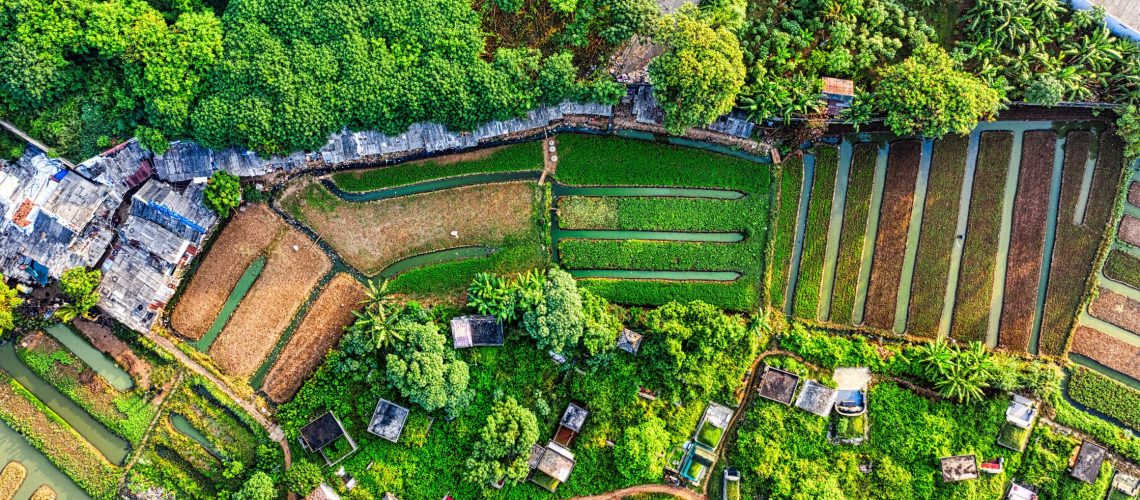When thinking about a sustainable farm, it is crucial to emphasize design principles that encourage ecological harmony and resilience.You may be curious about how integrating crops and livestock can create mutually beneficial relationships that enhance productivity and environmental health.
Additionally, prioritizing soil health and engaging with the community are critical components of this process. But how do these principles transform a farm into a thriving ecosystem? What further strategies can you implement to adapt to the constantly changing agricultural landscape?
The answers lie in understanding these foundational elements and how they connect with the patterns of nature.
Understanding Permaculture Basics
Permaculture design is a holistic approach that melds time-tested agricultural traditions with contemporary practices to create sustainable farming systems.
Exploring the history of permaculture reveals how indigenous practices have significantly influenced effective ecosystem management. These traditional methods, such as planting native crops and using shifting agriculture, promote sustainable interactions with the environment. By observing and learning from local ecosystems, you can adapt your approach and design farms that efficiently conserve energy and resources.
As you delve into permaculture, you’ll see how it emphasizes connecting with nature and maintaining balance within your farm.
It’s about working with natural systems rather than against them, creating a harmonious environment where energy conservation is a key priority. Embracing these principles supports sustainable farming and preserves vital ecosystems for future generations.
Key Permaculture Principles
Designing a sustainable farm requires understanding key permaculture principles, which can greatly enhance your success. By adopting these principles, you foster permaculture ethics and ensure your farm thrives in harmony with nature.
Start with effective ecosystem management to create a balanced environment. Use these design principles to guide you:
1. Value Diversity: Cultivate a variety of plants to boost biodiversity benefits and resilience against pests.
2. Obtain a Yield: Focus on sustainable yields by integrating diverse species that provide food and other resources.
3. Integrate Rather than Segregate: Position plants and animals to support each other, promoting symbiotic relationships.
4. Design from Patterns to Details: Recognize natural patterns to inform efficient farm layouts and resource use.
These fundamentals lead to a more productive and ecologically sound farm.
Embracing Additional Strategies
As you venture further into sustainable farming, adopting additional strategies can enhance your approach and strengthen your farm’s resilience.
Engage with your community to share experiences and create a support network.
Prioritize soil health by using natural amendments and practicing crop rotation to prevent nutrient depletion.
Water conservation is crucial; implementing rainwater harvesting systems and efficient irrigation techniques is essential to safeguard this precious resource.
Enhance biodiversity by planting a diverse range of crops and preserving natural habitats for beneficial organisms.
These efforts not only strengthen your farm’s ecosystem but also foster a sense of stewardship.
Adapting to Agricultural Change
Change is inevitable in agriculture, and embracing it can lead to innovative and sustainable farming practices.
To adapt effectively, consider these essential strategies:
1. Flexibility Strategies: Stay nimble in your methods, allowing you to adjust quickly to unexpected challenges or opportunities.
2. Creative Problem Solving: Approach obstacles with an open mind, crafting innovative solutions that align with sustainable goals.
3. Continuous Learning: Foster a mindset of learning from your surroundings. Observe environmental interactions and adapt your practices accordingly.
4. Innovative Solutions: Implement new technologies and methods that enhance productivity while respecting the environment.
Sustainable Farming Resources
Numerous resources are available to support your journey toward sustainable farming. You can explore sustainable agriculture practices that emphasize eco-friendly supplies and minimize environmental impact.
Organic farming resources offer valuable insights into soil health and pest management, laying the groundwork for a thriving farm ecosystem.
Dive into regenerative agriculture techniques, which focus on restoring soil biodiversity and increasing resilience against climate change.
To deepen your knowledge, permaculture education programs provide valuable training in designing farms that work in harmony with nature. These programs teach how to integrate various elements of your farm, ensuring each component supports the others efficiently.
Elevating Your Sustainable Farm with Southwest Florida Service & Supply
As you embark on the journey to create a sustainable farm, the expertise and services of Southwest Florida Service & Supply are invaluable partners in achieving your vision. With years of experience in agricultural irrigation, well water systems, trailer shop repair, and backflow prevention, they provide essential support for maintaining a healthy and productive farm.
Their commitment to quality and innovation ensures that your farm will thrive and have a positive impact on the environment. By choosing Southwest Florida Service & Supply, you are investing in a partnership that understands the complexities of sustainable farming and is dedicated to your success. Let their knowledge and dedication drive the growth and sustainability of your farm.

